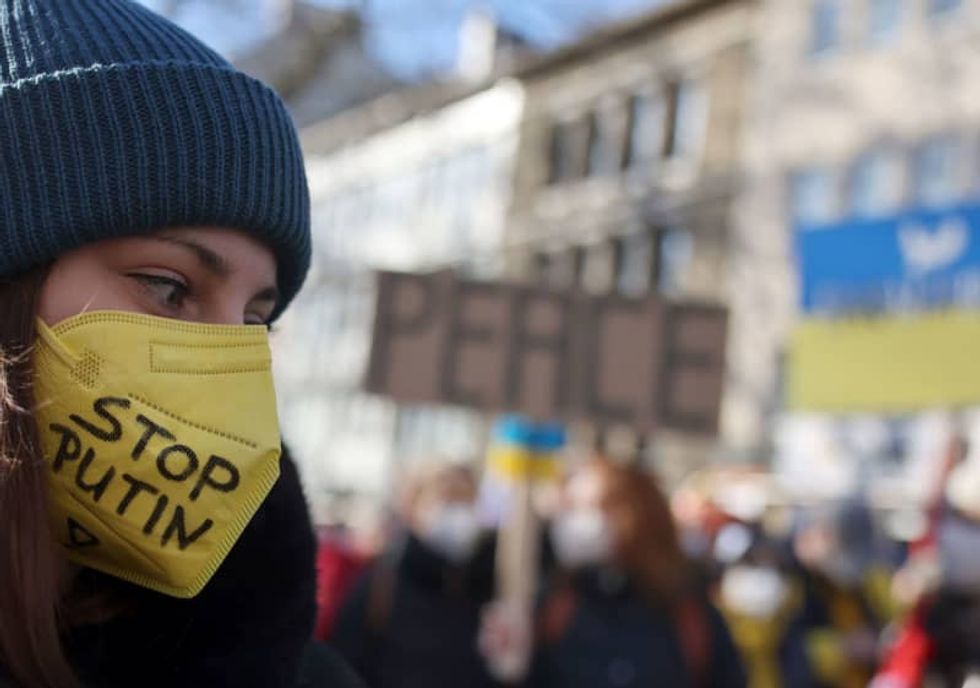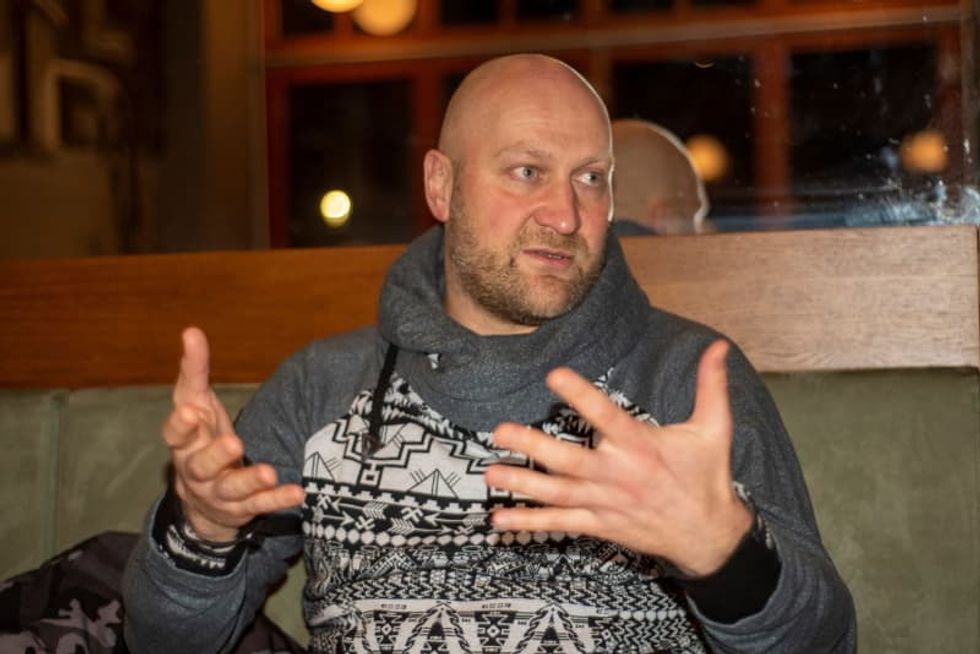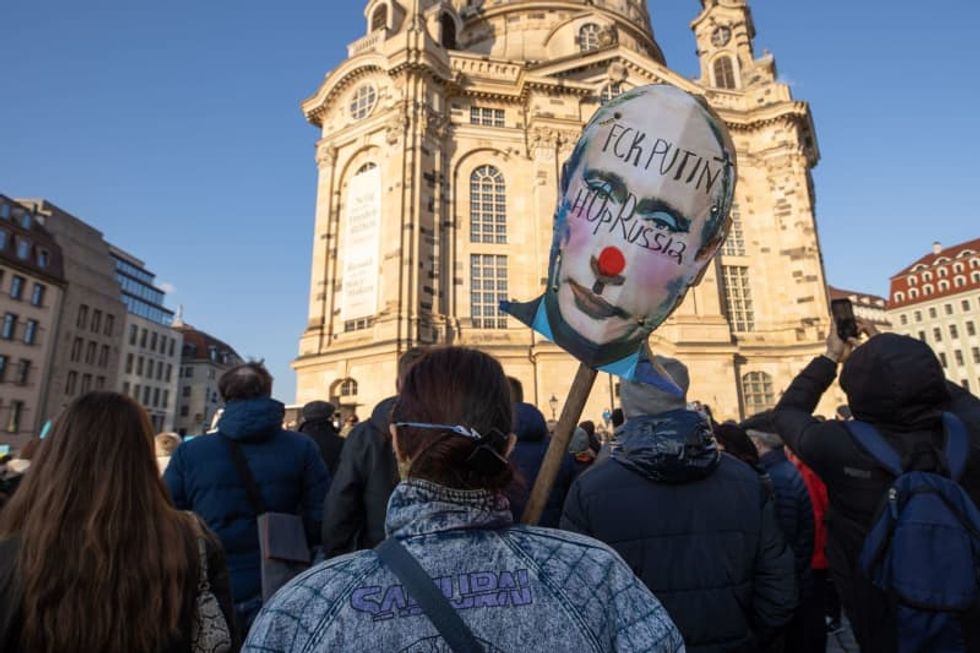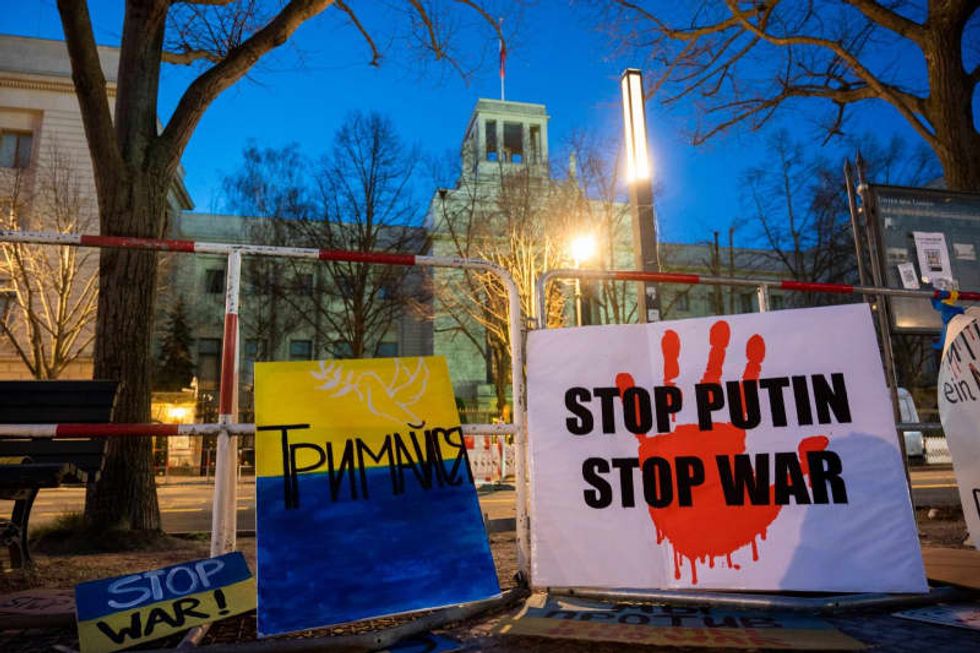

Nikolai Ivanov realised that people were starting to leave from around the time when the Ukraine crisis began in 2014.
"One day I noticed that almost my entire circle of acquaintances was gone - maybe 80 people, all emigrated to France, the US, Germany, Israel, Canada, Australia," says Ivanov, an art historian from St. Petersburg.
That was when conflict between Russia and Ukraine began, as Moscow's troops annexed Crimea.
Russia's latest war on Ukraine is likely to lead to an even greater exodus, not only of Ukrainians fleeing the fighting but also Russians.
Even before the latest outbreak of fighting and ensuing sanctions, many Russians were fleeing other countries, to escape a growing sense of being stifled and oppressed.
When Ivanov decided he too would move to Germany, he was happy to find that everyone he had lost in St. Petersburg was in Berlin, he says.
Journalists, writers, theatre makers, artists, sociologists, IT professionals - Ivanov knows hundreds of Russians who, like himself, moved to Germany, especially Berlin, either due to political pressure or to escape the poisoning of society under President Vladimir Putin.
Yet more people may decide to leave following the latest escalation in the Ukraine conflict, which comes on top of the trials of opposition leaders such as Alexei Nawalny or the Memorial human rights organization, according to sociologist Daria Skibo. She described this "new political immigration" in a study.
The migration has been described as an exodus of Russia's elite, with comparisons drawn to the 1920s, when tens of thousands of people from the Soviet Union went into exile in Berlin after the October Revolution. Berlin's glamorous Charlottenburg neighbourhood was transformed overnight into "Charlottengrad."
"Young people in Russia today have only two options: emigrate or keep quiet," Nobel Prize winner for literature Herta Müller recently told Der Spiegel news magazine.
Some 22% of Russians said they wanted to live abroad permanently, in a 2021 survey by the Levada Institute. That figure rose to 48% among 18- to 24-year-olds.
How many actually end up leaving, though, and why?
Official data offers little in the way of answers. German statistics show a fall in the number of asylum seekers from the Russian Federation. While 5,282 Russian citizens applied for asylum in Germany in 2018, only 4,464 did so the following year.
Meanwhile there were only 146 applications in 2020, the year the pandemic began, according to Germany's Federal Office for Migration and Refugees.
That number rose again last year, to 2,314 applications, once fewer restrictions were in place.
The trend appears to date back to 2012, when the biggest anti-government rallies began in Russia. Ever year since, some 2,000 new Russians have registered in Berlin, with only minor fluctuations. The city gained 2,079 in 2019.
Now, there are nearly 28,000 Russian citizens registered in the German capital, the state statistics office says.
Is this the "Putin exodus" predicted by the Atlantic Council in 2019?
"Among those who came after 2012, lack of political freedom is more often cited as a reason," says Félix Krawatzek of the Centre for Eastern European and International Studies (ZOiS) in Berlin.
That does not only apply to asylum seekers, he says, but is also what drives graduates, students or Russians seeking work in Germany to migrate.
"The emergence of political Russian migrants is probably underestimated," Skibo says. "That's because of the unconventional ways of immigration, for example through professional or educational visas, which are later converted into a permanent residency."
She herself came to Germany in 2019 on a Humboldt Foundation scholarship. She has now started a Master's degree at the Free University and is probably won't go back.
Ivanov moved to Berlin four years ago and immediately received a residence permit as a freelancer, he says. He now pens catalogues for Russian museums, articles, provides expert opinions for Russian artists who face legal problems at home due to their art.
"I've lost a lot - money, my language," Ivanov says at a café in Charlottenburg. But he doesn't feel a scrap of nostalgia. "Not at all."
He was driven to leave by the political climate, he says, describing the surging nationalism that followed Russia's annexation of Crimea in 2014.
A further problem was the self-censorship he felt at the university where he was working as a lecturer, and people's hostility towards him as a homosexual.
Russia passed a law against what was described as homosexual propaganda in 2013. One day, Ivanov says neighbours scrawled the word "pederast" on his door. Acquaintances turned away, he says, and a priest he once was friends with said he wished he was dead.
"That is one reason why I left Russia."
Political and economic reasons for leaving are sometimes hard to separate, according to Dmitri Stratievski of Berlin's Eastern Europe Centre.
But, he says, even some people who are not particularly politically engaged now say their dissatisfaction is partly due to with the way Moscow's domestic and foreign policy has developed. Others cite the poor management and administrative skills of those in power as the reasons they chose to leave.
Mikhail Kaluzhskii also made the decision at the start of the Ukraine crisis in 2014.
"My wife and I decided to leave because the atmosphere got really bad," says Kaluzhskii, a journalist from Moscow.
He had worked for a theatre programme of the Sakharov Centre, which raises awareness about repression during the Soviet period. He said he faced "constant hostility" there.
It took a while for his artist's visa for Berlin to come through, so first, he and his wife moved to Israel.
Then his wife was invited to join a science project at the FU Berlin in 2015, which brought them to the lively Berlin neighbourhood of Friedrichshain.
Now, their son and daughter are fully integrated and speak fluent German, says Kaluzhskii who prefers to speak English.
Money is a worry, though, he says, as it isn't exactly easy working as a freelance journalist.
A fair number of Russian emigrants are struggling in Germany, says Krawatzek. They are a mixed group, of some 1.2 million people. Some are ethnic Germans, some are Jewish immigrants, some move in search of work. More than two-thirds of educated migrants from Russia are women. Many others come to join family members who are already in Germany.
Those who don't speak German, or lack the qualifications they need, often struggle professionally and wind up in low-wage jobs or temporary jobs.
Despite the language barrier, Germany is the number one destination for intellectuals and students, ahead of the Czech Republic, the US and Britain.
"Every time I feel like complaining, I tell myself there's no reason to," Kaluzhskii says.
After all, he says, really, the question is, what would I be doing right now in Moscow?







